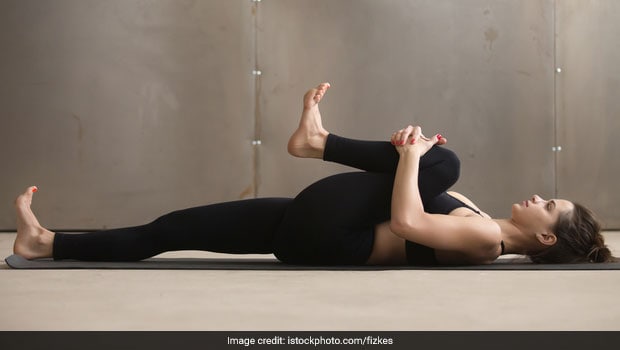Yoga for Gas: How to do Pawanmuktasana, Steps and Benefits
Yoga for Gas: How to do Pawanmuktasana, Steps and Benefits
 Feeling bloated?
There is no denying the fact that bloating woes may not only make you
feel extremely uncomfortable but can also mess with your digestive
health. There can be numerous reasons triggering bloating and gastric
issues ranging from eating contaminated food, stress and excessive
consumption of the wrong food items that could trigger gastric issues
among others. At times, when the gut bacteria are unable to break down
food properly, gastric issues arise. While chronic cases may require
medical intervention, in most cases, the condition gets better on its
own by avoiding certain foods and loading up on gut-friendly foods to balance and enhance the gut microbiome.Yoga has long been touted as one of the best ways to tame some of the most common health woes. Asanas like vajrasana,
when done regularly after meals, ensure active, smooth and strengthened
digestion. Can yoga help in relieving gas, bloating and ease gastric
issues ? Yes, absolutely. Yoga expert Yogacharya Anoop of the Chaitanya
Foundation enumerates the benefits of Pawanmuktasana which is
specifically beneficial in easing bloating and gastric troubles.
"Basically, any yoga asana or exercise that involves your lower body and
spinal twists will aid in gastric ailments and bloating While Pawanmuktasana is the best bet for such health concerns you can also try a range of other poses like Janu naman asana (knee bending pose) and exercises like leg rotations, lower back twists," he noted.
Feeling bloated?
There is no denying the fact that bloating woes may not only make you
feel extremely uncomfortable but can also mess with your digestive
health. There can be numerous reasons triggering bloating and gastric
issues ranging from eating contaminated food, stress and excessive
consumption of the wrong food items that could trigger gastric issues
among others. At times, when the gut bacteria are unable to break down
food properly, gastric issues arise. While chronic cases may require
medical intervention, in most cases, the condition gets better on its
own by avoiding certain foods and loading up on gut-friendly foods to balance and enhance the gut microbiome.Yoga has long been touted as one of the best ways to tame some of the most common health woes. Asanas like vajrasana,
when done regularly after meals, ensure active, smooth and strengthened
digestion. Can yoga help in relieving gas, bloating and ease gastric
issues ? Yes, absolutely. Yoga expert Yogacharya Anoop of the Chaitanya
Foundation enumerates the benefits of Pawanmuktasana which is
specifically beneficial in easing bloating and gastric troubles.
"Basically, any yoga asana or exercise that involves your lower body and
spinal twists will aid in gastric ailments and bloating While Pawanmuktasana is the best bet for such health concerns you can also try a range of other poses like Janu naman asana (knee bending pose) and exercises like leg rotations, lower back twists," he noted.
Benefits of Pawanmuktasana (The Wind Relieving Pose)
- It helps make the intestinal activity more active.
- It helps the liver in performing better.
- When teamed with its counter pose Setubandhasana, it also helps strengthen the spine, especially the lumbar region.
How to get into the pose
- Lie flat on your back; keep your legs and arms extended.
- Bring your knees together and hold with both your hands.
- Release left leg and keep it extended on the floor, hold the pose for 30 seconds.
- Now, bring back your left leg, hold both legs and release your right leg.
- Repeat for a minute, do thrice.
Things to keep in mind
- Those who suffer from neck or spinal issues should avoid doing the posture.
- One of the other versions of the posture also requires you to bend your neck forward every time your knees meet the chest. You can also try the posture without alternating the legs.
All
yoga postures must be observed under strict supervision. Get in touch
with a certified yoga expert to learn which postures will suit you the
best and how to practice them to reap maximum health benefits.













No comments
Post a Comment